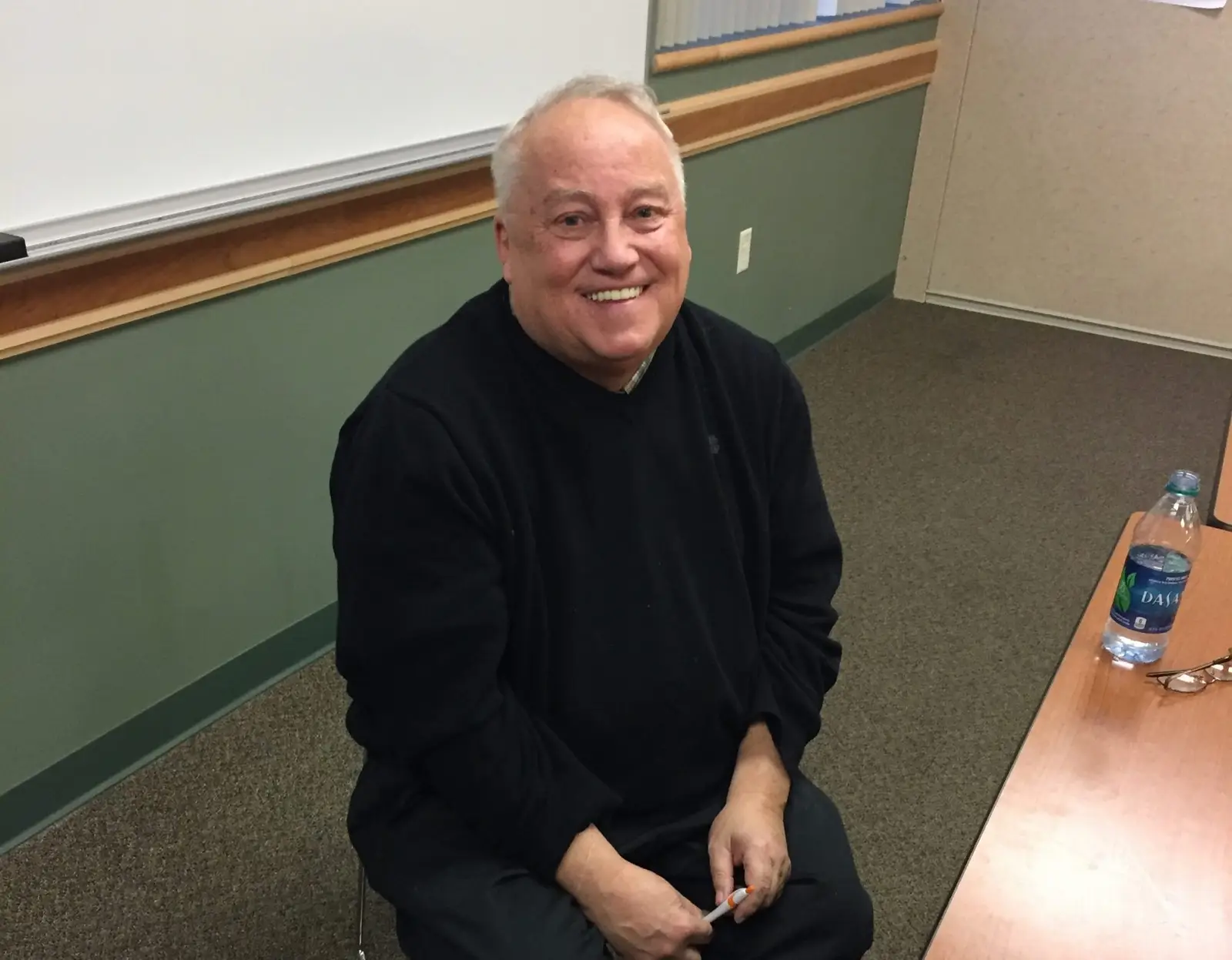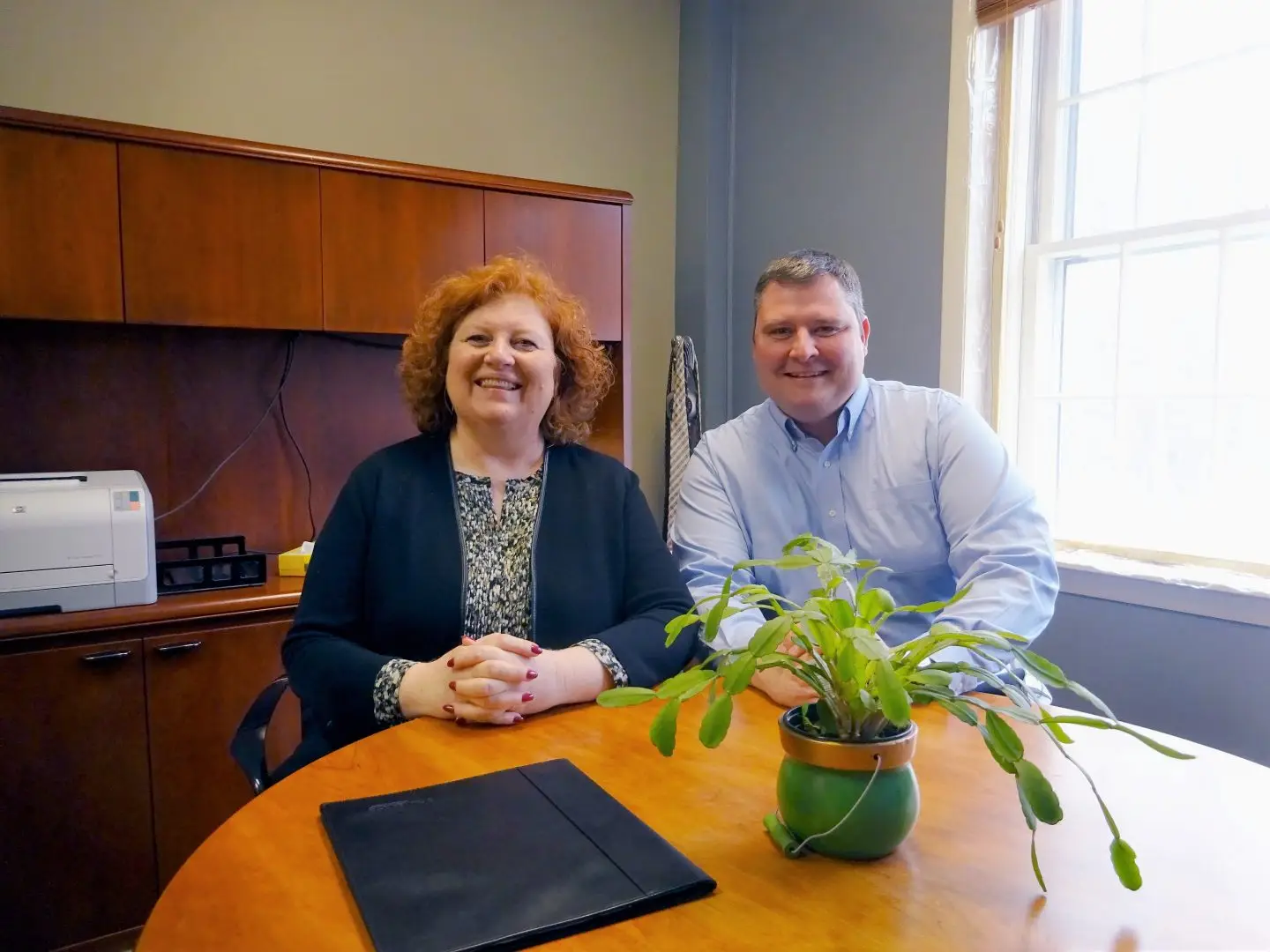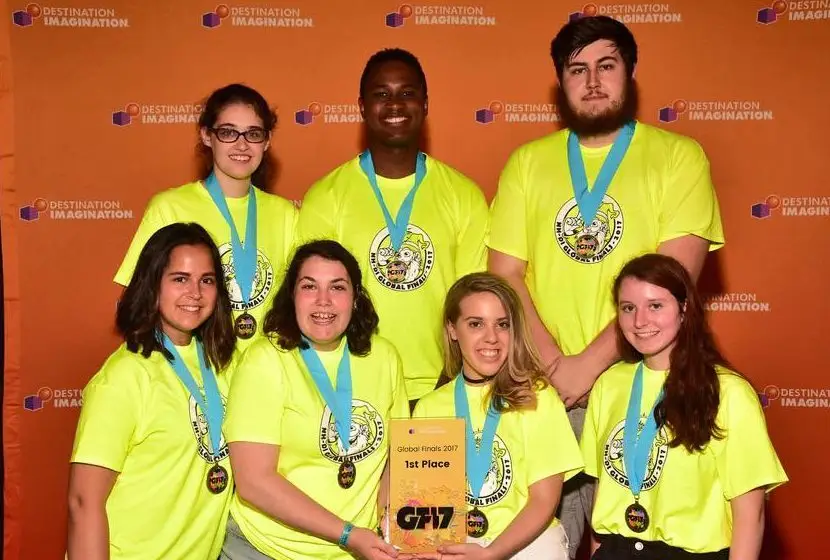Sometimes, a teacher doesn’t always get through to their students. For a teacher like Professor Kenneth Williams, he’s a teacher that one will remember throughout their lives.
Any student that’s had the pleasure of taking the class Education 102: Foundations of Education, either for a major, minor or simply an elective, has had the opportunity to learn valuable information from Professor Williams, an adjunct education professor that brings a lot of experience, charisma and enthusiasm to the table. Currently, he has been a professor at SNHU for five years. He was a school administrator for 32 years, a full time fourth grade teacher for three year, and then a full time fourth grade teaching assistant principal for three years.
Besides his extensive experience in the field of education, Williams was able to start his career as a school principal at the age of 28 at Belmont elementary school, located in Belmont, New Hampshire, in 1981. While one might think a career in education that’s spanned four decades would satisfy one’s passion, for Professor Williams, that extensive amount of experience only served to keep his passion for education more fired up than ever before.
Going into the field of college education during his retirement was something he thought about for the four years prior to his retirement.
“It’s funny because people come up to me all the time and say, ‘You’ve always wanted to teach at a college.’ They would ask, ‘What do you want to do when you retire?’ and I’d say, ‘You know I’d really like to work in a college.’ Now people come up to me and say, ‘Wow, you’re really doing what you wanted to do.’”
He sent out his resumé to a couple of different colleges in the area and a few contacted him, but SNHU was the school he felt would be a perfect fit.
Williams also explained how being a part of the college environment is energizing. To someone that’s been a part of the education field for a good chunk of his life, witnessing all the action going around the campus and classroom makes him feel like he’s part of a dynamic, fast paced community.
The college level of education may have always been what he wanted to do after he retired, but he admitted he felt some hesitation towards the new environment since he was used to the elementary level of education.
“In that case, it was six-year olds, seven-year olds, eight-year olds; here at SNHU I still have students. I was a little nervous at first since you guys were 18, 19, 20, and I never taught at that age level before, but its worked. It comes down to what I always say in class. If the student knows their teacher cares about them, then they’re going to want to learn.”
Five years may not seem like enough time for a lot of substantial change to happen, but Williams emphasized the fact of how much change the class EDU-102 has undergone. Originally known as EDU-200, the class was similar in the sense it focused on the general foundations of education, but the only opportunity for field experience the class gave students was a field trip and tour of a local school in the area. While that may have been an educational trip, it lacked the ability to give education students a clear picture of what a career in education looks like.
Now, the EDU-102 class provides education students the opportunity for weekly two hours of field observations in the same local school and classroom through the one credit field lab component known as EDU-102L handled by Professor Carol Soucy.
SNHU’s Education department lets their students go out in the field earlier than most other schools, giving them the opportunity to have an edge in experience and figure out if teaching really is the career they want to pursue. After meeting with his fellow colleagues in the School of Education, they all agreed changing the EDU-102 class to implement this type of field experience was in the best interests of the students enrolled in the education program.
Williams also noted that SNHU tends to attract high quality students who often display more maturity than students from other colleges he’s seen. He even revealed that he had some student teachers from SNHU when he was the principal at Peter Woodbury Elementary School in Bedford, New Hampshire. It was the early 2000’s, and those students were good; however, he believes the current education students at SNHU today are of a much higher quality than they were back in those times.
It’s undergraduate students like freshman and sophomores he enjoys teaching the most; possibly because the traditional ages of those levels are usually 18 or 19 which really isn’t too far off from the middle and high school levels. He has taught graduate students, however, at Plymouth State University, though wasn’t something he enjoyed as much as teaching other grade levels.
The class he taught was about school administration, so it did rely heavily on his principal background, but the mindset of the students didn’t appeal to him as much as the mindset of the undergrad students.
Unlike graduate classes, undergrad classes give him the opportunity to create a classroom environment where everyone knows each other. It’s a central component of his course progression.
“By the end of my class you will all know each other.”
Before he came to SNHU, his career in the field of school administration possessed a few considerable milestones. During his tenure as principal of Belmont Elementary from 1981 to 1989, he was able to bring to life and oversee the creation of a whole brand-new school for the students.
After he became principal at Peter Woodbury Elementary School in 1989, one of the first initiatives he took was the creation of a kindergarten program. Being able to develop and implement this program was one of the proudest moments of his career. To add further to his credentials, he even oversaw the construction of Riddle Brook Elementary School in , New Hampshire before going back to Peter Woodbury, which felt more like home for him.
In 2002, he won the New Hampshire Elementary School Principal of the Year Award and also was one of the 15 recipients of the Nationally Distinguished Principals award.
Let it be stated though that it wasn’t just about career accomplishments for Williams, it was more so about the students for him.
“A good teacher is one that can easily be remembered.”
At Peter Woodbury, Williams tried to be as visible of a presence as possible, preferring the day to day action over being in the office all day. He wanted his students at Peter Woodbury to easily remember him as their principal, much like today how he wants his college students to be able to remember him as their Foundations of Education Professor.
Some fun facts about Williams that don’t concern his educational career are that he’s been married for 40 years to his wife, has a dog named Twizzler and has three grandchildren he loves spending time with. During the summer months, he also spends time with his family up in Alton Bay, New Hampshire.
His ultimate piece of wisdom for all students, regardless of major, is to make sure to love what you do and reassess if you don’t. Life is too short to be unhappy.
All in all, it’s safe to say that just like at Peter Woodbury Elementary, Williams will be remembered by his students for quite some time.




